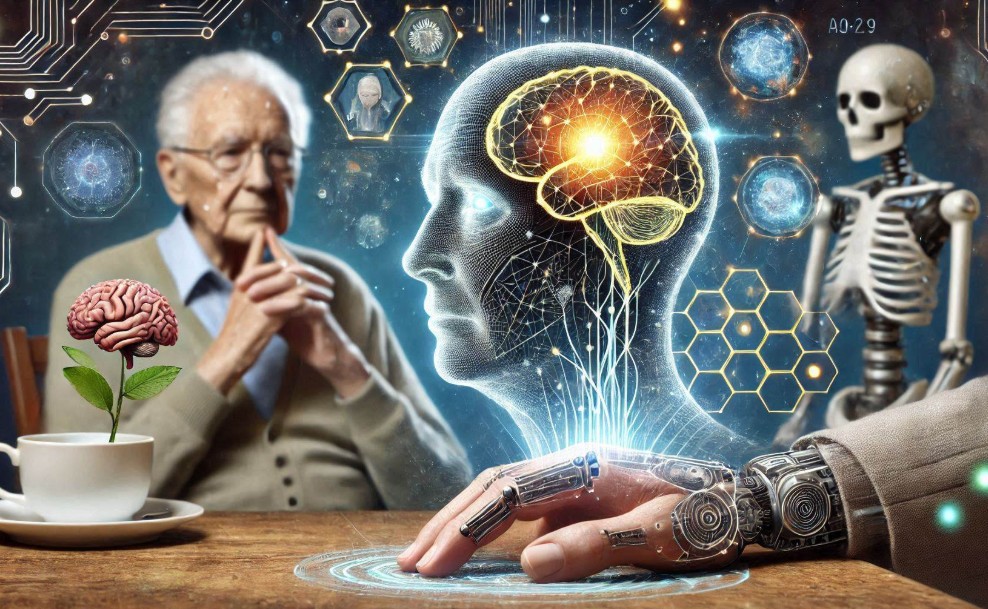In recent years, there has been a significant advancement in the field of Artificial Intelligence (AI) and Augmented Reality (AR). These technologies have become increasingly popular and have the potential to enhance virtual experiences in various fields such as gaming, education, healthcare, and...
Artificial Intelligence Recognizes Early Signs of Dementia

Recent advancements in technology have opened up new possibilities in healthcare, particularly in the identification and management of cognitive decline. Innovative systems are now capable of analyzing patterns in patient behavior and health data to provide earlier insights into potential neurological issues. These breakthroughs are transforming the way conditions that affect memory and cognition are diagnosed and managed.
One such innovation involves advanced computational tools designed to process vast amounts of data and uncover subtle indicators of cognitive changes. Through this approach, healthcare professionals can gain a deeper understanding of patients' conditions, allowing for more accurate assessments and tailored treatment plans. This technology promises to offer a proactive, preventative approach, rather than waiting for noticeable symptoms to appear.
The integration of machine learning and sophisticated algorithms is making it possible to recognize shifts in health before they become apparent through traditional methods. This shift has the potential to significantly improve patient outcomes by enabling timely interventions and reducing the long-term impact of cognitive disorders.
How AI Can Transform Dementia Diagnosis
Recent developments in machine learning are changing the landscape of healthcare, particularly in the diagnosis of cognitive disorders. By processing large amounts of medical data, advanced algorithms can identify subtle shifts in mental function that might not be immediately apparent to doctors. This technology enables a more accurate, timely diagnosis, providing new opportunities for intervention before the condition progresses too far.
Enhancing Diagnostic Accuracy
Traditional diagnostic methods often rely on physical examinations and subjective assessments, which can sometimes lead to delayed or incorrect diagnoses. However, by leveraging machine learning, clinicians can now utilize data-driven insights that offer a higher degree of precision. These systems analyze patterns in patient history, behavioral data, and even brain imaging to uncover potential risks long before more visible symptoms emerge.
Empowering Early Intervention and Treatment
With the ability to identify health changes at an earlier stage, healthcare providers can initiate treatment options much sooner. Early intervention has been shown to slow the progression of cognitive decline, allowing patients to maintain a higher quality of life for longer periods. Additionally, this proactive approach helps in crafting personalized care plans that better meet the unique needs of each patient.

The Role of Machine Learning in Healthcare
Recent advancements in computational methods are revolutionizing healthcare, enabling more efficient and accurate patient care. These sophisticated systems can analyze vast amounts of medical data, recognizing complex patterns and providing insights that would otherwise be difficult for human clinicians to detect. By automating data processing, these technologies enhance the ability to monitor, diagnose, and treat various health conditions, transforming the way healthcare is delivered.
Improved Diagnosis and Decision Making
Machine learning algorithms can process and interpret large datasets, such as medical records, imaging, and genetic information, to uncover hidden patterns that inform diagnosis. By offering a more precise analysis of symptoms and medical history, these tools assist doctors in making faster and more accurate decisions. In some cases, machine learning models are already being used to identify potential health issues before they become critical, allowing for preventative measures to be taken.
Personalized Treatment Plans
Another significant benefit of machine learning in healthcare is its ability to help create customized treatment plans. By analyzing individual patient data, these systems can suggest the most effective therapies tailored to a person's unique medical profile. This approach not only improves outcomes but also reduces the likelihood of adverse reactions, making healthcare more effective and efficient.
Advancements in Early Detection Technology
Technological progress has brought new methods for identifying health conditions in their initial stages, enabling medical professionals to take swift action. With innovations in data analysis and pattern recognition, healthcare providers can now monitor patients more closely and detect abnormalities that may have gone unnoticed in the past. These breakthroughs are not only improving diagnosis but also allowing for a more proactive approach to treatment and prevention.
Innovative Tools for Monitoring Health
Modern diagnostic tools are increasingly relying on advanced algorithms that can process and interpret data from various sources, such as medical imaging, genetic profiles, and behavioral assessments. These tools help uncover subtle changes in a patient's condition, often before the symptoms become apparent to the human eye. By identifying potential risks earlier, healthcare providers are better equipped to offer timely interventions that can slow or even prevent the progression of diseases.
Integration of Multidisciplinary Approaches
Another notable advancement is the integration of multidisciplinary approaches in the detection process. By combining insights from fields like neurology, data science, and psychology, medical experts can create a more comprehensive picture of a patient's health. This collaboration enhances the accuracy of diagnoses and allows for the development of more effective, individualized treatment strategies, ensuring that each patient receives the care they need at the right time.



